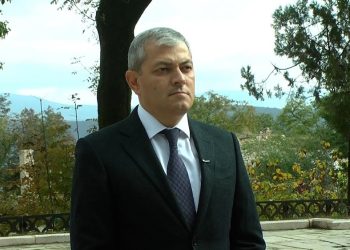Chevron-led TengizChevroil (TCO), Kazakhstan’s No.1 oil producer, is expected to keep output similar to its 2014 level this year and next, a Kazakh energy official said on Tuesday.
TCO, which is developing the Tengiz field in western Kazakhstan, had output of 26.7 million tonnes last year, down from a record 27.1 million in 2013.
TCO’s production is crucial to support Kazakhstan’s stagnant oil output before the Kashagan oil project, shut due to gas leaks in its pipelines in October 2013, is restarted at the end of 2016 or in early 2017.
Kazakhstan’s oil production fell by 1.2 percent to 80.8 million tonnes last year. It is officially forecast to drop further to 79.5 million this year.
“We are considering a number of scenarios, depending on the oil price,” Kazakhstan’s Energy Vice-Minister Magzum Mirzagaliyev told reporters, referring to TCO’s operations.
“We expect that output at TCO will stay at the 2014 level … with fluctuations of up to 0.5 million tonnes,” Mirzagaliyev said. “We are talking about 2015-16.”
TCO has mapped out an ambitious expansion plan, which aims to boost its production to 38 million tonnes by 2021, Kazakh Energy Minister Vladimir Shkolnik said earlier this year.
TCO shareholders are working to cut Tengiz’s expansion costs by around $3-4 billion from $38 billion, Mirzagaliyev said.
He said a final decision was expected by year end. “They are building their financial models depending on an expected oil price,” he said. “There is no final sum yet.”
Chevron holds 50 percent of TCO.
Kazakhstan, the second-largest ex-Soviet oil producer after Russia, holds a 20 percent stake in the venture via state oil and gas firm KazMunaiGas. Exxon Mobil has 25 percent and Lukarco, controlled by Russia’s Lukoil, the remaining 5 percent.
Mirzagaliyev also said Kazakhstan needed to cut the mineral extraction tax (MET) levied on oil fields, which yield only low profits, to free up investment.
“Accordingly, these oil-producing companies will be able to channel the free cash to support their output and continue geological exploration,” he said, noting 39 oil firms had been in touch with the energy ministry on the issue.
A decision was not expected before the first quarter of 2016.
Reuters












